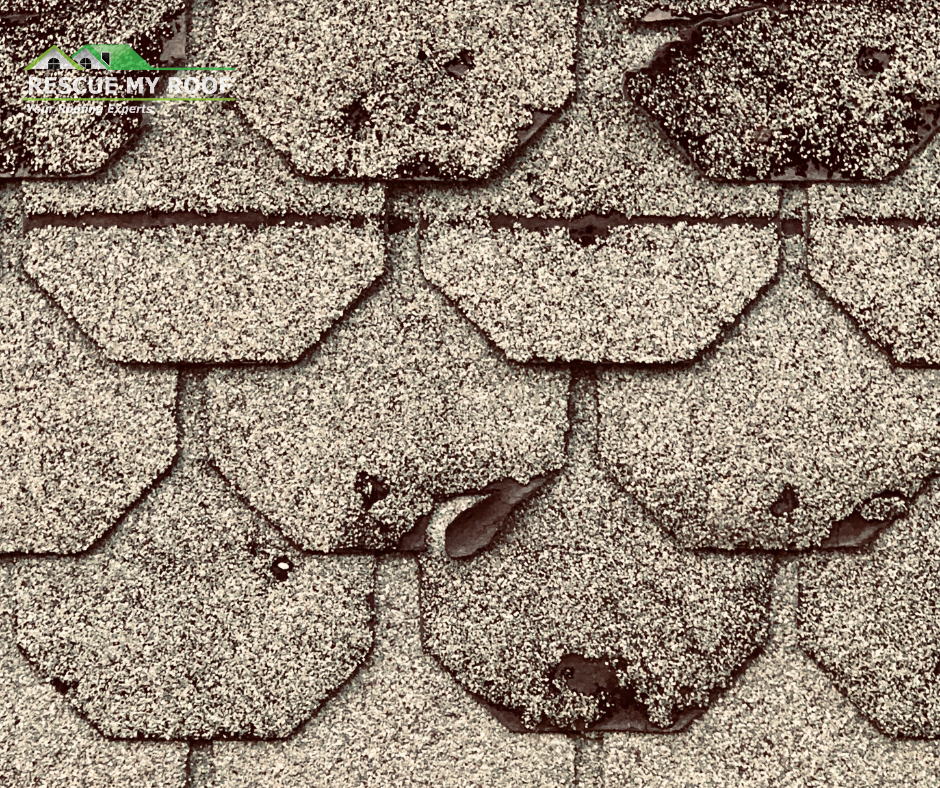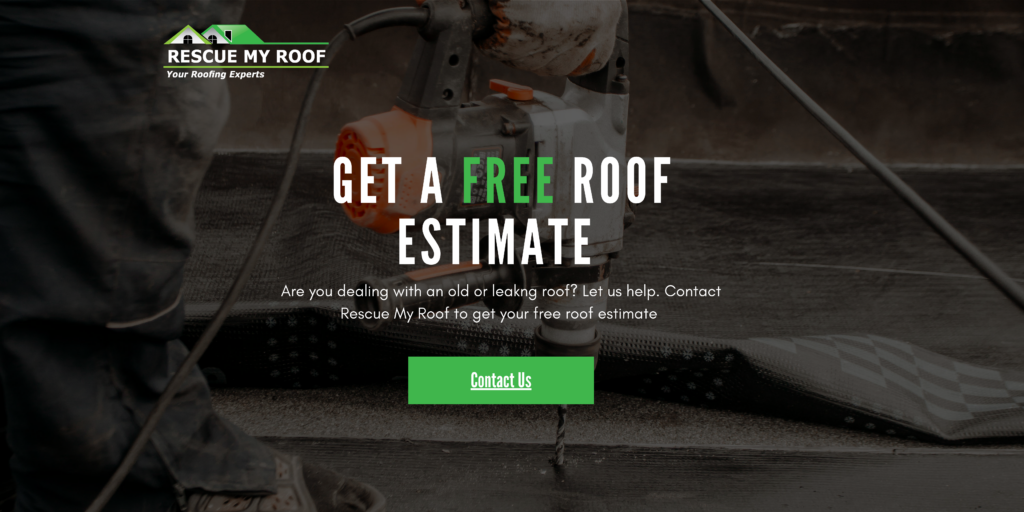Insurance Denies Your Roof Claim: What Next? (3 Steps to Follow)
Roof repairs can be expensive, so getting a claim covered by insurance could save you thousands of dollars.
However, your roof claim is subject to the insurance company’s review. If they deny the claim, it can cause added stress and leave you back at square one.
So, if insurance does deny your claim, what can you do? Are you completely helpless?
Rescue My Roof has been a force in the roofing industry for over a decade, educating homeowners on the roofing process.
We’ve taught hundreds of homeowners how to navigate the insurance process. This article will share the most important things you should know when dealing with a denied roof claim.
Ultimately, you’ll know the next steps after the homeowner’s insurance has denied your roof claim.
What Does Homeowners Insurance Cover?
When a roof insurance claim gets denied, the first question a homeowner should ask is, “why?”
Every insurance policy is different, and they will all cover (and not cover) different things.
Here is some things homeowners insurance should cover:
1. Acts of God

Most insurance companies classify things like storms, hurricanes, and fallen trees as an act of nature or an “Act of God.” This means the damage is entirely out of the policyholder’s hands, and insurance will cover it.
If you are unsure what your insurance company considers an “Act of God,” contact them. Every policy and company is different, so you want to talk to a trained professional.
2. Discontinued Shingle Colors

Insurance doesn’t like to cover cosmetic damage, but if you have an area of your roof that is covered by the policy from wind or hail, and your roof’s shingles are not in production anymore- you’re in luck.
If the current shingle on your roof is discontinued – meaning the manufacturer no longer makes that color or style – insurance will cover roof replacement costs.
This means you’re not left with a Frankenstein roof of multiple shingle types, and you get a new roof in the process!
3. The Amount of Roof Damage Meets the Policy Criteria
Every insurance policy and company is different, so what they will cover will vary from person to person.
However, insurance may cover repairs or a total roof replacement depending on the amount of damage or general wear and tear on your roof.
Make sure to thoroughly review your policy and find an accredited roof inspector to assess the damage properly. You want an inspector who will catch all the damage that may not be immediately visible.
Then contact your insurance adjuster to make sure it meets the criteria, and file a claim to reimburse you for your roof repairs.
What Does Homeowners Insurance Not Cover?
Not all roof damage will be covered by insurance. If your insurance company has denied your claim, you might find the reason below.
1. High-Risk Zones
Weather happens. Unfortunately.
But when you live in areas known for hurricanes, earthquakes, or other acts of nature that can severely damage your home, insurance companies get pretty picky about what they will and won’t cover.
For example, after Hurricane Katrina, insurance companies were loaded with massive insurance claims for home damage. They added a new addition to their policies that affected “high-risk” areas where hurricanes often hit.
This new policy created a Hurricane Deductible. The average deductible is the amount the policyholder must pay before the insurance begins to cover any costs. The insurance company determines this price.
Hurricane deductibles work the same way. It is a minimum price set by the insurance company that the policyholder must pay before insurance will cover costs for hurricane-related damage on top of their existing deductible.
You can get a better sense of whether or not you live in a high-risk area here. If you determine you live in a high-risk area, prepare to potentially shell out more money before the insurance covers any roof repairs.
2. Cosmetic Damage

Because your roof is an integral part of your home, insurance will cover a roof repair or replacement if it impacts the safety of your property.
However, insurance won’t cover most cosmetic issues like small areas of missing or loose shingles. They will cover loose and missing shingles, but if it is a small area, the deductible cost may be equal to or higher than the cost of the minor repairs.
If you are missing a few shingles and want to get them replaced, but it is not causing any serious issues, you may have to repair those on your own.
3. General Wear and Tear
Like everything, roofs deteriorate over time. You might have to pay to repair these when you see signs of general wear and tear, like loose shingles or visible flashings.
Even if the damage is caused by storms blowing through your area, causing your roof to become leaky over time, insurance may still claim it is general wear and tear damage that was bound to happen.
Of course, this is dependent on how severe the damage is. If a storm damages 20-30% of your roof, you may have a case for an insurance claim. Or if you have 7-10 hail-damage hits in 100 square feet, that may be another instance where they will cover storm damage.
It is essential to check with your roof inspector and insurance adjuster on what is and is not covered when it comes to general wear on your roof.
4. Incorrect Roof Installation
A tornado just wreaked major havoc on your roof, and you immediately called the insurance adjuster to assess the damage.
Except you don’t get the news you were planning on hearing, and your insurance won’t cover the damage. But why?
When your roof is not installed with proper roofing techniques, it leaves it susceptible to preventable damage. This is why it is necessary to do thorough research about the contractors you hire to complete your roofing project.
But if you are in a situation where you don’t have insurance coverage, it may be time to check out financing options.
What To Do After Homeowner’s Insurance Denies Your Roof Claim
Your roof has sustained damage, which is already stressful. Homeowner’s insurance won’t pay up, making an overwhelming situation worse.
If insurance has denied your claim, that doesn’t have to be the end. There are still options that end with a shiny new roof.
Here are some options for when insurance won’t pay for a new roof:
1. File An Appeal
If insurance has denied your claim, you can file an appeal.
Each insurance company will have a different appeal process. However, typically when a homeowner files an appeal, insurance will send out an independent insurance adjuster to reevaluate your roof damage.
A new adjuster may find new evidence that indicates your policy /should/ cover the damage. In that case, your appeal will be approved.
They may conclude that the original ruling still stands if there’s no new evidence.
If they deny your appeal, you may have to consider other options (such as financing) to pay for roof repairs.
2. Find Roof Financing
When you need roof repairs – or a replacement – and insurance won’t pay, the next step is financing.
There are six financing options available:
- Payment Plans
- Third-Party Financing
- Credit Cards
- Home Equity Loans
- Personal Loans
- Cash or Check
There’s a lot that goes into financing your home. You can learn more about your financing options by downloading our Roof Financing Guide.
3. File A Lawsuit
If you believe insurance should cover the damage per their policy, you can take a judicial approach.
Filing a lawsuit against your insurance company can be time-consuming and expensive, so it’s best to do your due diligence before filing a suit.
Getting A Roof Replacement When Insurance Won’t Pay
Homeowner’s insurance covers not all roof damage, so it’s essential to know your options if they deny your claim.
by homeowner’s insurance, which is why it’s important to know your options if they deny your claim.
You can file an appeal, battle it out in court, or find financing for a replacement or repairs.
You can learn more about navigating the insurance process with “Will Insurance Cover My Repairs or Replacement” or “4 Reasons You Should Get Multiple Roofing Quotes.”
Additionally, you can download our Buyer’s Guide to learn more about the entirety of the roofing process.
Regardless of whether or not the insurance claim goes through, a roof repair or replacement is inevitable.
If you need any roofing services in Southeastern Wisconsin, Rescue My Roof has got you covered. Contact us today to get a free estimate.


